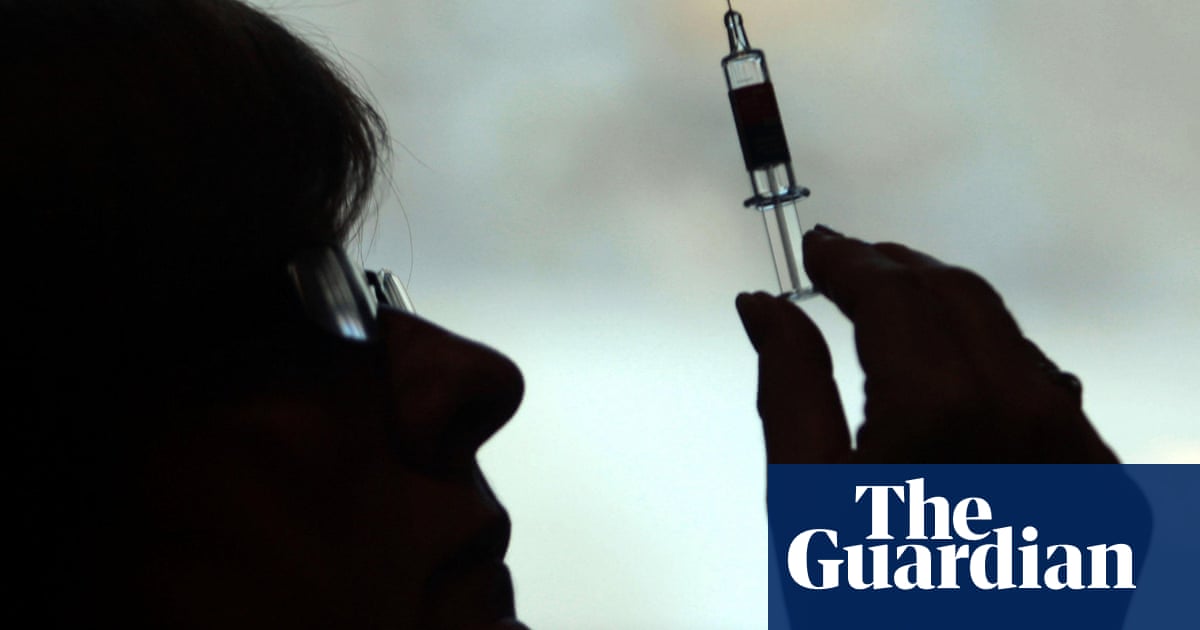

I wholeheartedly agree with Devi Sridhar’s concern about dwindling childhood protection from infectious diseases (In a sceptical era, understand this: vaccines do work – and our children need them, 27 March). Coming from a small hamlet near Holmfirth, West Yorkshire, I developed measles, mumps, then whooping cough in rapid succession on starting primary school. I spent most of my first four months off school. I was fortunate to join a long queue and receive my first polio vaccine.
In 1966, when I was a medical student, my father was appointed to manage the only British Polio Fellowship residential home in the country. I was horrified to find young people there with severe paralysis from the waist down, wholly dependent on carers. There were older residents too, many with grossly swollen ankles. They shared ghastly stories of life in an iron lung during their initial recovery and the anger of their plight now.
In 1984, working as a locum GP at a military hospital in Jeddah, I had to admit a young boy with profound paralytic polio. I dealt with him with tears in my eyes, knowing full well what his future held.
Visiting the ancient Greek site of Mystras, I learned that the duration of life then was thought to be up to 35 years. Now well into my 70s, I have been so lucky to have lived in the age of vaccination that has done so much to keep me and my fellow baby boomers fit and active for so long, and which continues to do so.
Bernard Bedford
Brockenhurst, Hampshire
Devi Sridhar highlights the abuse against doctors who supported vaccination during the Covid-19 pandemic. I received daily death threats in 2022. Many other scientists were threatened, along with their families.
The anti-vaccination movement could continue to grow if left unchecked. Three policy changes could help reverse this. First, qualified healthcare professionals who publicly oppose vaccinations that have proven clinical benefits need to be investigated by the General Medical Council. Second, threats against doctors and scientists need to be stopped by stricter rules on social media, with legal action if necessary. Third, school entry requirements on vaccination need to be made more stringent. Vaccinating children and adolescents leads to more benefits than risks. Schools and universities should require proof of a range of approved vaccinations for entry, with medical explanations needed for students who are not fully vaccinated.
One in eight children in the UK are not fully vaccinated against measles, mumps and rubella. And one in 12 are not vaccinated against diphtheria, tetanus, pertussis and polio. Measles outbreaks have been reported in countries with poor vaccine coverage.
Vaccination cannot be mandated, but stricter entry requirements for schools and universities, supported by clear information on the benefits, could help reverse the damaging effects of the anti-vaccination movement.
Dr Andrew Hill
London
Prof Sridhar has illuminated for me why I can vividly recall the push for polio vaccination – and the fear of the disease – when I was a child in the early 60s. The burning issue today is how to combat the tide of misinformation and propaganda masquerading as news and peddled by special interest groups. While respecting the right of freedom of speech, we must have accountability in the media.
Andrew Scaife
York
 Print
Print




